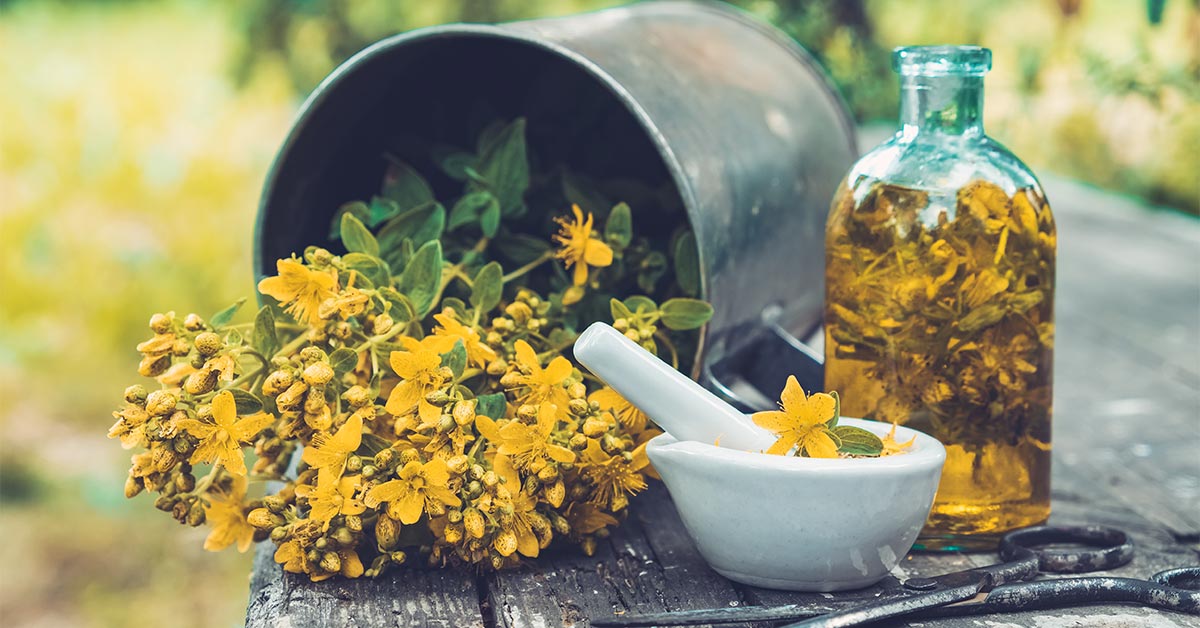WHAT HAPPENS TO OUR BODY WHEN WE CONSUME PROTEIN
The health benefits of it!

St. John’s Wort, also known as the “Herb of the Forerunner,” gets its name from the fact that the plant is in full bloom on June 24th, the feast day of John the Baptist.
When the flowers are crushed, they release a deep red juice that has given rise to many legends. This red color is said to symbolize the blood of Christ. According to another story, the plant grew from the blood of John the Baptist after his beheading.
Doctors of classical Greece and Rome used St. John’s Wort to treat wounds. During the Middle Ages, it was highly valued. Paracelsus wrote enthusiastically: “It is impossible to find a better remedy for wounds anywhere in the world.”
It wasn't until the 18th century that its nerve-strengthening effect was discovered, an action that is now central to its medical use.
Used Parts and Active Compounds
The medicinal parts of the plant are collected during its flowering period. Key pharmacological compounds include the anthraquinone derivatives hypericin and pseudohypericin, the acylphloroglucinol hyperforin, flavonoids, xanthones, tannins, caffeic acid derivatives, and essential oil.
To date, more than 30 clinical studies involving nearly 4,000 participants have been conducted to assess the effectiveness of St. John’s Wort preparations in treating mild to moderate depression.
In many of these studies, the typical symptoms of depressive mood showed clear improvement.
✅ Its Use in Traditional Medicine
St. John’s Wort has properties that make it one of the most important healing herbs for humans. It has been used to treat skin conditions, promote wound healing, and strengthen the immune system. It is effective for sciatica and all types of rheumatic pain.
It speeds up the healing of wounds, bruises, varicose veins, minor burns, sunburns, and injuries to muscles and connective tissue.
Today, it is one of the most thoroughly researched herbs, showing particularly promising results in the treatment of mild to moderate depression and other neurological disorders.
❗ Contraindications
Do not take it together with antidepressants, contraceptive pills, or anticoagulants. St. John’s Wort oil is photosensitive, meaning that when used both externally and internally, you must avoid direct exposure to sunlight.
The information provided about the herbs and their properties has been sourced from books, botanical texts, and research studies. It does not constitute medical advice or prescription in any way. Please consult your doctor if you are pregnant, breastfeeding, taking medication, or have any health concerns.